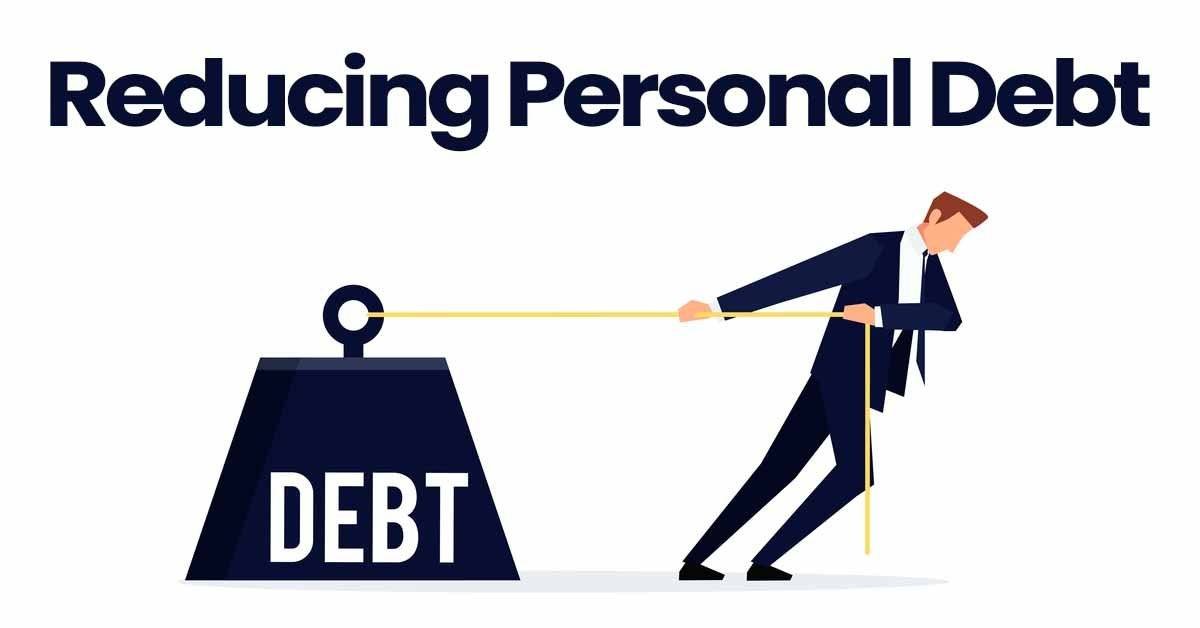Personal debt can be a significant source of stress and financial instability. Whether it’s from credit cards, student loans, or other forms of borrowing, reducing your personal debt is crucial for achieving financial freedom and peace of mind. This detailed guide will provide you with actionable tips and strategies to help you reduce and manage your personal debt effectively.
Understanding Your Debt
Assess Your Financial Situation
The first step in reducing personal debt is understanding your financial situation. List all your debts, including the amount owed, interest rates, minimum monthly payments, and due dates. This comprehensive overview will help you prioritize your debts and develop a repayment strategy.
Calculate Your Debt-to-Income Ratio
Your debt-to-income (DTI) ratio is a crucial metric for understanding your financial health. It is calculated by dividing your total monthly debt payments by your gross monthly income. A high DTI ratio indicates that a significant portion of your income is going towards debt repayment, which can affect your ability to secure loans or credit.
Strategies for Reducing Personal Debt
1. Create a Budget
Creating a budget is essential for managing your finances and reducing debt. Track your income and expenses to identify areas where you can cut back and allocate more money towards debt repayment.
- Track Spending: Use tools like spreadsheets, budgeting apps, or financial software to monitor your expenses.
- Set Goals: Define clear financial goals, such as paying off a specific debt within a set timeframe.
- Adjust Your Spending: Identify non-essential expenses that you can reduce or eliminate to free up funds for debt repayment.
2. Prioritize Your Debts
Prioritizing your debts can help you pay them off more efficiently. There are two popular methods for prioritizing debt repayment:
- Debt Snowball Method: Focus on paying off the smallest debts first while making minimum payments on larger debts. As you pay off each small debt, you gain momentum and motivation to tackle larger debts.
- Debt Avalanche Method: Focus on paying off the debts with the highest interest rates first while making minimum payments on other debts. This method can save you more money on interest over time.
3. Negotiate with Creditors
Contact your creditors to negotiate better terms, such as lower interest rates, extended repayment periods, or reduced balances. Creditors are often willing to work with you if you demonstrate a genuine effort to repay your debts.
4. Consolidate Your Debts
Debt consolidation involves combining multiple debts into a single loan with a lower interest rate. This can simplify your payments and reduce the total amount of interest you pay. Consider options like personal loans, balance transfer credit cards, or home equity loans for consolidation.
5. Use Windfalls Wisely
Apply unexpected windfalls, such as tax refunds, bonuses, or inheritance, towards debt repayment. Using these extra funds can make a significant impact on reducing your debt faster.
6. Increase Your Income
Look for ways to increase your income to accelerate debt repayment. Consider part-time jobs, freelance work, or selling unused items. Even a small increase in income can make a big difference over time.
7. Avoid Accumulating More Debt
While working on reducing your existing debt, it’s crucial to avoid accumulating more. Limit your use of credit cards, avoid taking out new loans, and focus on living within your means.
Tips for Staying on Track
1. Set Up Automatic Payments
Automate your debt payments to ensure you never miss a due date. This can help you avoid late fees and penalties, and it ensures consistent progress towards debt reduction.
2. Monitor Your Progress
Regularly review your financial situation and track your progress towards debt reduction. Adjust your strategies as needed to stay on track and celebrate small milestones to keep motivated.
3. Seek Professional Help
If you’re struggling to manage your debt, consider seeking help from a credit counselor or financial advisor. They can provide personalized advice and help you develop a debt management plan.
4. Educate Yourself
Stay informed about personal finance and debt management by reading books, attending workshops, and following reputable financial blogs. The more you know, the better equipped you’ll be to handle your finances effectively.
Conclusion
Reducing personal debt requires a combination of strategic planning, disciplined budgeting, and consistent effort. By assessing your financial situation, prioritizing your debts, and implementing the strategies outlined in this guide, you can take control of your finances and work towards a debt-free future. Remember, the journey to financial freedom is a marathon, not a sprint, so stay committed and patient as you work towards your goals.
Reducing personal debt is a crucial step towards achieving financial stability and peace of mind. By following these tips and staying disciplined, you can effectively manage and reduce your debt, paving the way for a more secure financial future.
